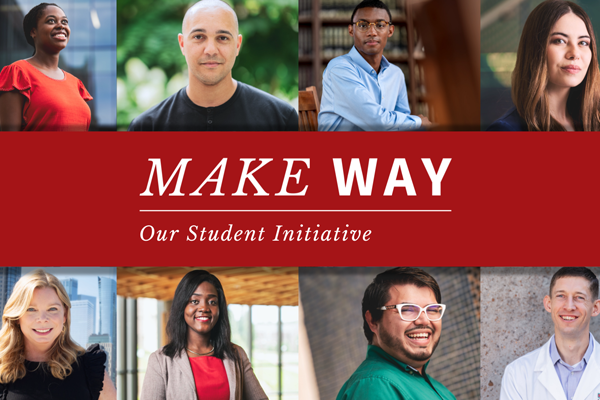Washington University in St. Louis to launch novel mental health doctoral training program
This fall, Washington University in St. Louis will launch a new mental health doctoral training program that will expand clinical mental health services on campus while cultivating a new generation of expert psychologists.
Designed to attract top psychology doctoral students from universities across the nation, the one-year clinical placement will train a cohort of four residents and will be accredited through the American Psychological Association and Association of Psychology Postdoctoral and Internship Centers. Kirk Dougher, associate vice chancellor for health and well-being, compared the program to a medical residency and said the residents will complete rotations in areas such as anxiety and depression, eating disorders, group interventions and sports psychology.
“The doctoral training program will bring an incredible infusion of energy and insight year after year to Counseling and Psychological Services,” Dougher said. “These residents have excelled in the academic programs at their own institutions. In addition to their professional skills, they share the same lived experiences as many of our students.”
The Department of Athletics will have a dedicated resident throughout the academic year to support varsity athletes. While many top Division I programs employ psychologists, the practice is less common among Division III institutions such as WashU.
“Athletes have a whole array of different challenges than their peers, ranging from the pressures of the season to a potentially career-ending injury,” Dougher said. “We want to make sure that we’re meeting their needs in a way that is functional.”
Beyond the immediate benefit to students, the program will develop a pool of talented candidates for future job openings. Currently, Counseling and Psychological Services, formerly Mental Health Services, employs the equivalent of 16 full-time mental health providers.
“It is a constant challenge to find staff. We want to train psychologists in our system and show them all that WashU has to offer in hopes that some of them will stick around,” Dougher said.
San Francisco Bay Area residents John and Carol Hamilton recently pledged $3 million to establish an endowment to support the residency program. They are parents of three children who have attended WashU. Their gift supports the university’s efforts to provide a best-in-class student experience as part of Make Way: Our Student Initiative.
The Hamiltons have served as chairs of the university’s Parents Council and are engaged in cultivating a vibrant WashU community among Bay Area alumni and parents. In addition, Carol Hamilton serves on the National Council for Student Affairs, and John Hamilton will join the Board of Trustees in July. The couple previously provided gifts for student health and well-being; the athletics department; and endowed scholarships at the McKelvey School of Engineering.
“Through the experiences of our kids, we know how important everything outside the classroom is — from residential life through health and wellness to athletics,” Carol Hamilton said. “Washington University has demonstrated a real concern for the psychological and physical well-being of students. We hope this accredited program will support the university in this mission.”
Additional funding for the program will be provided by the Justin Hardy Courage Fund as well as by Brian Sullivan and Deirdre DeLany of Los Angeles, who served on the Parents Council executive committee and previously have contributed to the athletics department and to McKelvey Engineering.
The training program is part of the Division of Student Affairs’ Healthy Excellence initiative, a comprehensive spectrum of programs and services that promote positive health behaviors. In recent years, the university has launched Timely Care, which provides free 24/7 medical and mental health services; hired additional mental health experts; introduced QPR training, a nationally recognized suicide prevention program; and expanded WashU Cares, which connects students to mental, medical, financial and academic resources. In addition, Student Affairs is working with schools to appoint well-being ambassadors.
“Our goal is that every student who graduates from Washington University will be healthier than when they arrived,” said Anna Gonzalez, vice chancellor for student affairs. “And we mean healthy in the broadest sense of the word, from understanding the importance of sleep, exercise and nutrition to learning financial well-being.”

